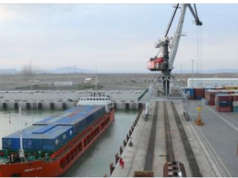OPEC and non-member oil producers moved closer on Wednesday to clinching a deal on extending output cuts by nine months to clear a global stocks overhang and prop up the price of crude, Reuters reported.
The Organization of the Petroleum Exporting Countries meets in Vienna on Thursday to consider whether to prolong the accord reached in December in which OPEC and 11 non-members agreed to cut oil output by about 1.8 million barrels per day in the first half of 2017.
The market sees an extension by nine months as the base-case scenario since OPEC’s de facto leader Saudi Arabia and top non-member Russia said this month they favored such a move.
Saudi ally Kuwait signaled on Wednesday OPEC could discuss deepening the cuts, in what would come as a positive surprise for market bulls, but hopes quickly faded after a key committee recommended keeping the curbs unchanged.
Two OPEC sources told Reuters a ministerial committee comprising OPEC members Algeria, Kuwait, Venezuela, current OPEC president Saudi Arabia and non-OPEC producers Russia and Oman recommended keeping the cuts “at the same level”.
The committee said in a statement it had recommended extending the cuts by nine months to March 2018.
Saudi Energy Minister Khalid al-Falih gave the thumbs up when asked whether the committee had agreed on a nine-month extension.
“Before the end of the year, prices may go above $55 a barrel,” Algerian Energy Minister Noureddine Boutarfa told Reuters before the committee meeting, saying an extension by nine months should help clear the glut by the year-end.
Saudi Arabia and Russia have said that extending output curbs by nine months rather than the initially planned six months would help speed up market rebalancing and prevent crude prices from sliding back below $50 per barrel.
“OPEC has already achieved a lot. They stopped the oil market surplus from building even before they started cutting,” said Gary Ross, head of global oil at PIRA Energy, a unit of S&P Global Platts.
Most OPEC ministers including Iraq’s have already voiced support for extending cuts by none months.
Iranian Oil Minister Bijan Zanganeh, who clashed with Saudi Arabia in many previous OPEC meetings, has so far kept a low profile, saying extensions of six or nine months were possible. Zanganeh is due in Vienna later on Wednesday.
Under the existing deal, Iran received an exemption slightly to raise output, which has been curtailed by years of Western sanctions. Iran’s production has been stagnant in recent months, suggesting limited upside potential at least in the short term.






